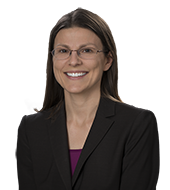The New Kickback Prohibition for Substance Use Disorder Treatment Facilities, Clinical Laboratories and Recovery Homes
On October 24, 2018, President Trump signed into law comprehensive opioid legislation known as the “Substance Use-Disorder Prevention that Promotes Opioid Recovery and Treatment for Patients and Communities Act” or the “SUPPORT for Patients and Communities Act” (referred to herein as the “Support Act”). [1] The Support Act is the culmination of bipartisan efforts to draft and pass legislation in both the House and Senate over the past year.
Sections 8121 and 8122 of the Support Act amend the federal criminal code to create a new anti-remuneration provision applicable to certain services payable by any public or private health plan. The “Eliminating Kickbacks in Recovery Act” (the “Kickback Provision”) [2] covers substance use disorder treatment and housing services and also pertains to all clinical laboratory services, regardless of whether the service is provided through or in connection with substance use disorder services.
The Kickback Provision prohibits the following knowing and willful acts by any person:
(1) the solicitation or receipt of any remuneration in return for referring a patient or patronage to “a recovery home, [3] clinical treatment facility, [4] or laboratory" [5] (services provided by recovery homes, clinical treatment facilities, and laboratories shall be referred to herein as the “Applicable Services”); or
(2) an offer or payment of remuneration to induce a referral for Applicable Services; or
(3) an offer or payment of remuneration in exchange for an individual using the Applicable Services.
The Kickback Provision applies to services reimbursed by a “health care benefit program,” which means “any public or private plan or contract, affecting commerce, under which any medical benefit, item, or service is provided to any individual, and includes any individual or entity who is providing a medical benefit, item, or service for which payment may be made under the plan or contract.” [6] Thus, the Kickback Provision could cover Applicable Services reimbursed under an ERISA plan, a group or individual health insurance plan or any public or private insurance as long as the health benefit program affects interstate or foreign commerce. [7] This would include any insurer that operates in more than one state or health care benefit plan that covers members in more than one state, even if the provider operates only in one state.
Accordingly, the significance of the Support Act’s Kickback Provision is that it is triggered when reimbursement for Applicable Services is from either private or public health benefit programs. Unlike the Anti-Kickback Statute (“AKS”) [8] or the civil monetary penalties law [9] under the Social Security Act, the Kickback Provision is not limited to services reimbursed under Federal health care programs. Every provider of Applicable Services that is not exclusively self-pay only should consider the applicability of the Kickback Provision in its transactions with third parties and in any arrangement that involves potential remuneration to the consumer.
Until now, some providers of addiction treatment services have felt immune from the prohibitions of the AKS because they do not participate in Federal health care programs. Instead, they have looked to state law to determine whether any state anti-kickback, anti-referral, fee splitting prohibition, or similar statute applied to privately insured services provided in that state.
Remarkably, the prohibition in the statute on laboratory services applies to remuneration paid for any referral for such services, regardless of whether the laboratory test is for the connected to addiction treatment or recovery. Accordingly, in a statute specific to addressing the opioid epidemic, all insured clinical laboratory tests, not just those provided for patients of addiction treatment or recovery, are potentially subject to the Kickback Provision. Whether this was the intention of Congress or will be refined through guidance or regulation from the Attorney General remains to be seen.
There are statutory exceptions to the seemingly wide-ranging application of the Kickback Provision, some of which are similar to, but not exactly the same as, the safe harbors of the AKS. For that reason, the applicability of these exceptions needs to be carefully considered as separate from the safe harbors under the AKS.
The exceptions include:
(1) discounts that are disclosed in costs claimed or charges made for the Applicable Services;
(2) payments for employment made by employers to employees or independent contractors (under a bona fide employment or contractual relationship), as long as employee payment is not based on the amount of business generated through referrals to the employer, number of services performed by the employer, or amounts billed or received by the employer ; [10]
(3) a discount of a drug under the Medicare coverage gap discount program;
(4) a payment meeting the personal services arrangement safe harbor at 42 C.F.R. § 1001.952(d);
(5) a waiver or discount of coinsurance or copayment under 42 C.F.R § 1001.952(h)(5);
(6) remuneration between a federally qualified health center (“FQHC”) and any individual or entity providing goods, items, services, donations, or loans to the FQHC under an agreement as long as the agreement contributes to expanding access to or improving the quality of services to a medically underserved population; and
(7) any payment made under an alternative payment model as defined in the Social Security Act or other payment arrangement determined to be necessary by the Secretary of Health and Human Services for care coordination or value-based care.
The Attorney General, in consultation with the Secretary, may also provide further interpretation of or add to the exceptions by regulation.
Penalties include payment of a fine of not more than $200,000, imprisonment of not more than ten years, or both. [11] The Kickback Provision expressly does not apply “to conduct that is prohibited under the AKS.” [12] This limitation suggests that the federal government will not prosecute an arrangement involving a Federal health care program under both the AKS and the Kickback Provision, although it could prosecute conduct that is permitted under the AKS but prohibited under the Kickback Provision. In addition, it does not preempt any state law on the same subject matter, so providers of these services will still need to consider applicable state law in any potential “remuneration” transaction.
K&L Gates’ health care practice can assist health systems and hospitals, and other providers and suppliers in responding to changes implemented by the Support Act and assessing how the Support Act would impact them. We will continue to closely monitor developments related to the Support Act. Please note that this is one in a series of alerts and podcasts from K&L Gates discussing various provisions of the Support Act.
NOTES:
[1] SUPPORT for Patients and Communities Act, Pub. L. 115-271.
[2] Section 8122 of the Support Act, 18 U.S.C. § 220.
[3] A recovery home is defined as “a shared living environment that is, or purports to be, free from alcohol and illicit drug use and centered on peer support and connection to services that promote sustained recovery from substance use disorders.” 18 U.S.C. § 220(e)(5).
[4] A clinical treatment facility is defined as “a medical setting, other than a hospital, that provides detoxification, risk reduction, outpatient treatment and care, residential treatment, or rehabilitation for substance use, pursuant to licensure or certification under State law.” 18 U.S.C. § 220(e)(2). This definition would appear to exclude private physician offices providing Suboxone or other medication assisted treatment services when a state does not license or certify those services in that setting.
[5] Notably, the inclusion of laboratory services under the Kickback Provision is not limited to clinical lab testing involved in substance use disorder treatment programs. The definition of “laboratory” refers to the definition in the Public Health Service Act at 42 U.S.C. § 263a. 18 U.S.C § 220(e)(4).
[6] 18 U.S.C. § 24(b).
[7] The Commerce Clause of the United States Constitution authorizes Congress to regulate commercial activity “with foreign Nations, and among the several States, and with the Indian Tribes.” U.S. Const. Art. I, Sec. 8, cl. 3.
[8] 42 U.S.C. § 1320a-7b(b).
[9] 42 U.S.C.
[10] This exception suggests that it may not provide protection to commission-based compensation of either an independent or W-2 employed sales force. This exception is more restrictive than the AKS safe harbor for W-2 employees, which does not include a volume or value component as a requirement of the safe harbor.
[11] 18 U.S.C § 220(a).
[12] 18 U.S.C. § 220(d)(1).
This publication/newsletter is for informational purposes and does not contain or convey legal advice. The information herein should not be used or relied upon in regard to any particular facts or circumstances without first consulting a lawyer. Any views expressed herein are those of the author(s) and not necessarily those of the law firm's clients.






